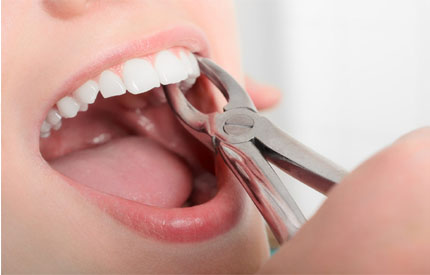
Wisdom Tooth Pain: Finding Relief With A Walk-In Dentist Near Me
Wisdom tooth pain is a common dental issue that many individuals experience at some point in their lives. These third molars, often referred to as wisdom teeth, typically erupt in late adolescence or early adulthood. While they can be an asset for some people, providing extra chewing power, they can also be a source of significant discomfort and pain. When wisdom tooth pain strikes, finding a walk-in dentist near you becomes a top priority to alleviate the discomfort. In this article, we will explore the causes of wisdom tooth pain, the symptoms associated with it, and why seeking immediate dental care from a walk-in dentist is essential.
Understanding Wisdom Tooth Pain
Wisdom teeth, or third molars, are the last set of molars that typically emerge in the back of the mouth. They usually make their appearance between the ages of 17 and 25, a time often referred to as the “age of wisdom,” which is how they got their name. These latecomers can cause various problems, and wisdom tooth pain is one of the most common issues associated with their eruption.
Wisdom Tooth Pain Can Occur For Several Reasons, Including:
- Impaction: Wisdom teeth often do not have enough room to emerge properly. They can become impacted, meaning they are trapped beneath the gum line or emerge at an angle. Impacted wisdom teeth can cause severe pain and may require surgical extraction.
- Infection: When the gum tissue around a partially erupted wisdom tooth becomes infected, it can lead to pain, swelling, and discomfort. This condition is known as pericoronitis.
- Crowding: Wisdom teeth can cause crowding in the mouth, pushing other teeth out of alignment and leading to pain and misalignment of the bite.
- Cavities and gum disease: The location of wisdom teeth at the back of the mouth makes them difficult to clean, increasing the risk of cavities and gum disease. These dental issues can result in pain and discomfort.
Symptoms Of Wisdom Tooth Pain
Wisdom tooth pain can manifest in various ways, and the symptoms may vary from person to person. If you’re experiencing any of the following signs, it’s essential to seek prompt dental care from a Walk In Dentist near me:
- Pain or discomfort: This is the most common symptom of wisdom tooth issues. The pain can range from a dull ache to severe, sharp pain in the back of the mouth.
- Swelling and inflammation: Swelling of the gums and jaw in the affected area is a common symptom of wisdom tooth problems.
- Difficulty opening your mouth: The pain and swelling can make it challenging to open your mouth fully.
- Bad taste or odor: Infections associated with wisdom teeth can cause bad breath or a foul taste in the mouth.
- Headaches: Wisdom tooth pain can radiate to the head, leading to headaches or migraines.
- Jaw pain: The pressure and inflammation caused by wisdom teeth can result in jaw pain.
The Importance Of Seeking A Walk-In Dentist Near Me
When wisdom tooth pain strikes, it’s crucial to find a walk-in dentist near you as soon as possible. Ignoring or postponing treatment can lead to more severe dental issues and increased pain. Here’s why seeking immediate dental care is essential:
- Prevent Complications: Wisdom tooth pain is often a sign of an underlying dental problem. Leaving it untreated can lead to complications such as infections, abscesses, or the development of cysts or tumors.
- Pain Relief: Wisdom tooth pain can be excruciating, affecting your daily life and overall well-being. A walk-in dentist can provide immediate relief through various treatment options, including pain management and antibiotics.
- Preserve Oral Health: Timely intervention by a dentist can help preserve your oral health by addressing the issue before it worsens. This may include extraction of the problematic wisdom tooth or other appropriate treatments.
- Prevent Spread of Infection: Dental infections can spread to other parts of the body, leading to more significant health problems. Seeking prompt dental care can help contain and eliminate the infection before it becomes systemic.
- Customized Treatment Plan: A walk-in dentist will assess your specific situation and create a personalized treatment plan to address your wisdom tooth pain effectively. This ensures that you receive the most appropriate care for your needs.
Finding A Walk-In Dentist Near Me
If you’re experiencing wisdom tooth pain, the next step is to find a walk-in dentist near you. Here are some steps to help you in your search:
- Ask for Recommendations: Start by asking friends, family members, or colleagues for recommendations. They may have had similar experiences and can suggest a reliable walk-in dentist.
- Search Online: Utilize online search engines and directories to find walk-in dentists in your area. Make sure to include your location and the keyword “walk-in dentist near me” in your search to get accurate results.
- Check Reviews: Read online reviews and ratings of dental clinics and dentists. This can provide valuable insights into the quality of care and patient experiences.
- Call Ahead: Contact the dental clinics you’re considering to inquire about their walk-in policies, hours of operation, and availability. Some dental offices may accept walk-ins on a first-come, first-served basis, while others might require appointments.
- Verify Insurance: If you have dental insurance, ensure that the walk-in dentist you choose accepts your plan to minimize out-of-pocket expenses.
- Emergency Dental Clinics: Some areas have dedicated emergency dental clinics that specialize in providing immediate care for dental emergencies like wisdom tooth pain.
Treatment Options For Wisdom Tooth Pain
Once you’ve found a walk-in dentist near you, they will assess your condition and recommend appropriate treatment options based on the cause and severity of your wisdom tooth pain. Common treatment options include:
- Pain Medication: Over-the-counter or prescription pain relievers can help manage the discomfort associated with wisdom tooth pain.
- Antibiotics: If an infection is present, your dentist may prescribe antibiotics to clear the infection before addressing the underlying issue.
- Oral Rinses: Antiseptic oral rinses can help reduce inflammation and cleanse the affected area.
- Extraction: In cases of severe impaction or recurring issues, the dentist may recommend wisdom tooth extraction. This is a common and relatively straightforward surgical procedure that can provide long-term relief.
- Pericoronitis Drainage: If pericoronitis is the cause of your pain, your dentist may need to drain the abscess and clean the area.
- Orthodontic Treatment: In cases where wisdom teeth are causing crowding or misalignment of other teeth, orthodontic treatment may be necessary to address the issue.
Your dentist will explain the recommended treatment plan and answer any questions you have before proceeding. It’s essential to follow your dentist’s instructions for aftercare to ensure a smooth recovery and prevent complications.
Tips For Managing Wisdom Tooth Pain At Home
While waiting to see a walk-in dentist for your wisdom tooth pain, there are several steps you can take at home to alleviate discomfort:
- Rinse with Warm Saltwater: Gargling with warm saltwater can help reduce inflammation and provide temporary relief.
- Over-the-Counter Pain Relievers: Over-the-counter pain medications, such as ibuprofen or acetaminophen, can help manage pain. Follow the recommended dosages.
- Cold Compress: Applying a cold compress to the outside of your cheek can help reduce swelling and numb the area.
- Topical Oral Gel: Some over-the-counter gels and creams can provide temporary numbing relief when applied to the affected area.
- Soft Diet: Stick to a soft diet to avoid putting excessive pressure on your wisdom teeth. Foods like soups, yogurt, and mashed potatoes are good choices.
- Good Oral Hygiene: Continue to practice good oral hygiene by gently brushing and flossing your other teeth to prevent additional dental issues.
Remember that these home remedies are only temporary solutions and do not address the underlying problem. They should be used in conjunction with seeking professional dental care from a walk-in dentist.
Conclusion
Wisdom tooth pain is a common dental issue that can cause significant discomfort and disrupt your daily life. When you experience wisdom tooth pain, it’s crucial to find a walk-in dentist near you to address the problem promptly. Ignoring the pain can lead to more severe dental issues and complications, so seeking immediate dental care is essential for your well-being.
By understanding the causes and symptoms of wisdom tooth pain and knowing how to find a walk-in dentist, you can take the necessary steps to find relief and preserve your oral health. With the right care and treatment, you can overcome wisdom tooth pain and enjoy a healthier, pain-free smile.



